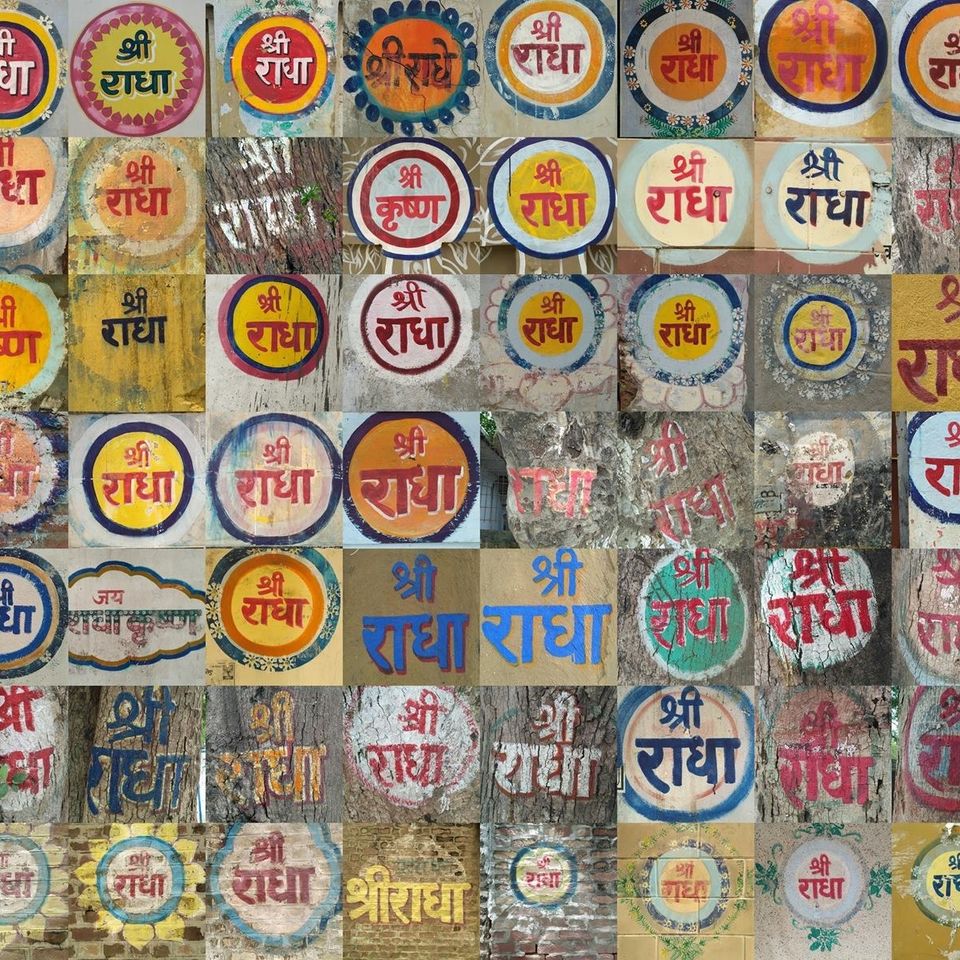
Krishna rasik: māṅgalyam, sthairyam, tejaḥ
मांगल्यम स्थौर्यम तेजः
auspiciousness, steadiness, influence
māṅgalyam - मांगल्यम - auspiciousness
māṅgalyaṁ jagatām eva viśvāsāspadatā matā ||2.1.259||
"Being the object of faith for the entire world is called having auspiciousness."
yathā
anyāyyaṁ na harāv iti vyapagata-dvārārgalā dānavā
rakṣī kṛṣṇa iti pramattam abhitaḥ krīḍāsu raktāḥ surāḥ |
sākṣī vetti sa bhaktim ity avanata-vrātāś ca cintojjhitāḥ
ke viśvambhara na tvad-aṅghri-yugale viśrambhitāṁ bhejire ||2.1.260||
An example:
"Because there is no sense of injustice in the Lord, even the asuras leave their doors open. Because
they have faith that Kṛṣṇa is their protector, the devatās indulge in play
without worry.
Understanding that He is the witness and thus knows their bhakti, those offering obeisance (devotees) have given up anxiety. O supporter of the universe! Who does not have faith in Your lotus feet?"
sthairyam - स्थौर्यम - steadiness
vyavasāyād acalanaṁ sthairyaṁ vighnākulād api ||2.1.261||
"To remain fixed in one's duties even though they are filled with obstacles is called steadiness."
yathā -
pratikule'pi sa-śūle, śive śivāyāṁ niraṁśukāyāṁ ca |
vyalunād eva mukundo vindhyāvali-nandanasya bhujān ||2.1.262||
"Even though His act was obstructed by Śiva with his trident and Bāṇa's mother who had appeared without clothing, Mukunda cut off Bāṇasura's arms."
tejaḥ - तेजः - influence
sarva-cittāvagāhitvaṁ tejaḥ sadbhir udīryate ||2.1.263||
"The wise say that the ability to enter into the hearts of all others is called influence."
yathā śrī-daśame (10.43.17) -
mallānām aśanir nṝṇāṁ naravaraḥ strīṇāṁ smaro mūrtimān
gopānāṁ svajano'satāṁ kṣitirbhujāṁ śāstā sva-pitroḥ śiśuḥ |
mṛtyur bhoja-pater virāḍ aviduṣāṁ tattvaṁ paraṁ yogināṁ
vṛṣṇīnāṁ paradevateti vidito raṅgaḥ gataḥ sāgrajaḥ ||2.1.264||
An example from the Tenth Canto of Śrīmad-Bhāgavatam [10.43.17]:
"The various groups of people in the arena regarded Kṛṣṇa in different ways
when He entered it with His elder brother.
The wrestlers saw Kṛṣṇa as a lightning bolt, the men of Mathurā as the best
of males,
the women as Cupid in person,
the cowherd men as their relative, the impious rulers as a chastiser,
His parents as their child, the King of the Bhojas as death,
the unintelligent as the Supreme Lord's universal form,
the yogīs as the Absolute Truth
and the Vṛṣṇis as their supreme worshipable
Deity."
